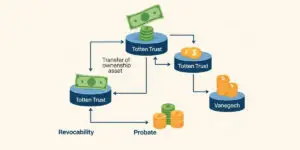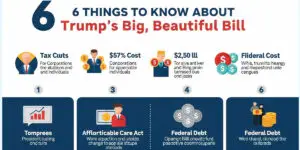What Is Elder Law?
Assuming that you haven’t begun the home arranging process prior, then, at that point, you really want to begin it right away. As a senior, you have some time to burn to visit our workplaces and start on the interaction. Interestingly, it doesn’t set aside a great deal of effort to accomplish the ideal plan. This can include a plan with Medicaid for future causes.
An estate agent is an individual that you trust to do the different wishes that you have set out in the will. They deal with the continuous bill and tell any loan collectors about the installment of their obligations. They additionally assume responsibility for the duties and attempt to take care of potential issues.
While picking an estate agent, you should be certain that it is somebody that has the ability to settle on legitimate choices for your benefit. For the most part, it is a nearby relative or a companion that you can trust.
Indeed, even in the wake of concocting the best plan, you want to ensure that you survey the arrangement routinely. At the point when you have an arrangement, certain things will trigger you to make a stride, like purchasing another house or a vehicle, or another child being added to the family.
FAQ
- What is medicaid fraud?
Medicaid fraud is simply false information to get Medicaid to pay for all the services needed for yourself or someone else.
2. What is a pour-over will?
A pour-over Will is a Will written and documented stating the actions needed to be done through the trustee which will be transferred to him or her. The truster is someone who’s responsible for many assets to be taken care of or sent to assigned beneficiaries.
3. When someone dies does their debt go away?
No, when someone dies, if that person had any debt, creditors will still ask for the money back adding more credit to the accounts. After the designation of the persons’ assets during court, payment of debts will also be announced to whoever the court would call responsible. So a family member, spouse, or close friend will continue with paying everything you owe which is why you should make an estate plan to prevent this sort of conflict.
4. Does a trust protect assets from a nursing home?
Yes, as long as you transfer funds towards your rent, mortgage, or assistant living instead of going to a nursing home.
5. Does transfer on death avoid probate?
The transfer of death only makes the probate process much more difficult having you provide additional details and reason for the transfer. This makes the process longer and if it’s longer, it’ll be more expensive. The only way to avoid probate is through a trust because everything would be set up or planned ahead, especially the transfer of death.
6. What does an elder care attorney do?
An elder care attorney has the expertise in arranging any necessary goals to whoever the elder being served needs. It can go along with not just estate planning but also medical care proxies, elder abuse, or dealing with ownership of spousal belongings. This is all regards to any senior over the age of 50.
7. If my spouse dies do I get his social security and mine?
Because of the laws of Estate Planning, there’s something labeled, the surviving spouse clause where if one spouse dies, the surviving spouse gets his or her assets. The only assets not provided would be government funds that the spouse still owes or would actually lose the entire thing because of labeled ownership unless there’s a Will stating rights to owning these finances.
8. How do I know if my unemployment claim was approved in NY?
After applying for unemployment at the official NY government website, ny.gov, you should receive a letter towards your home address 2 weeks after applying stating how much unemployment you should be received. Though that’s if you get approved. If not, you would receive the same letter in the same amount of time saying you’re ineligible due to certain dynamics in your life that the government won’t give you many benefits.
9. Do you need a lawyer for advance directives?
These forms can be created by yourself as long as you are over the age of 18 but has the same disadvantages of handwriting your own Will. This means that advance directives shouldn’t be handwritten to prevent future fallacies due to not being able to read the file or putting information that has nothing to do with what’s needed. So you can make your own advance directives but it’s recommended to get a lawyer to guide you in the process.
10. Does a trust override a will?
No, a trust has different functions than a Will but a trust secures the Wills needs for whatever is listed.









